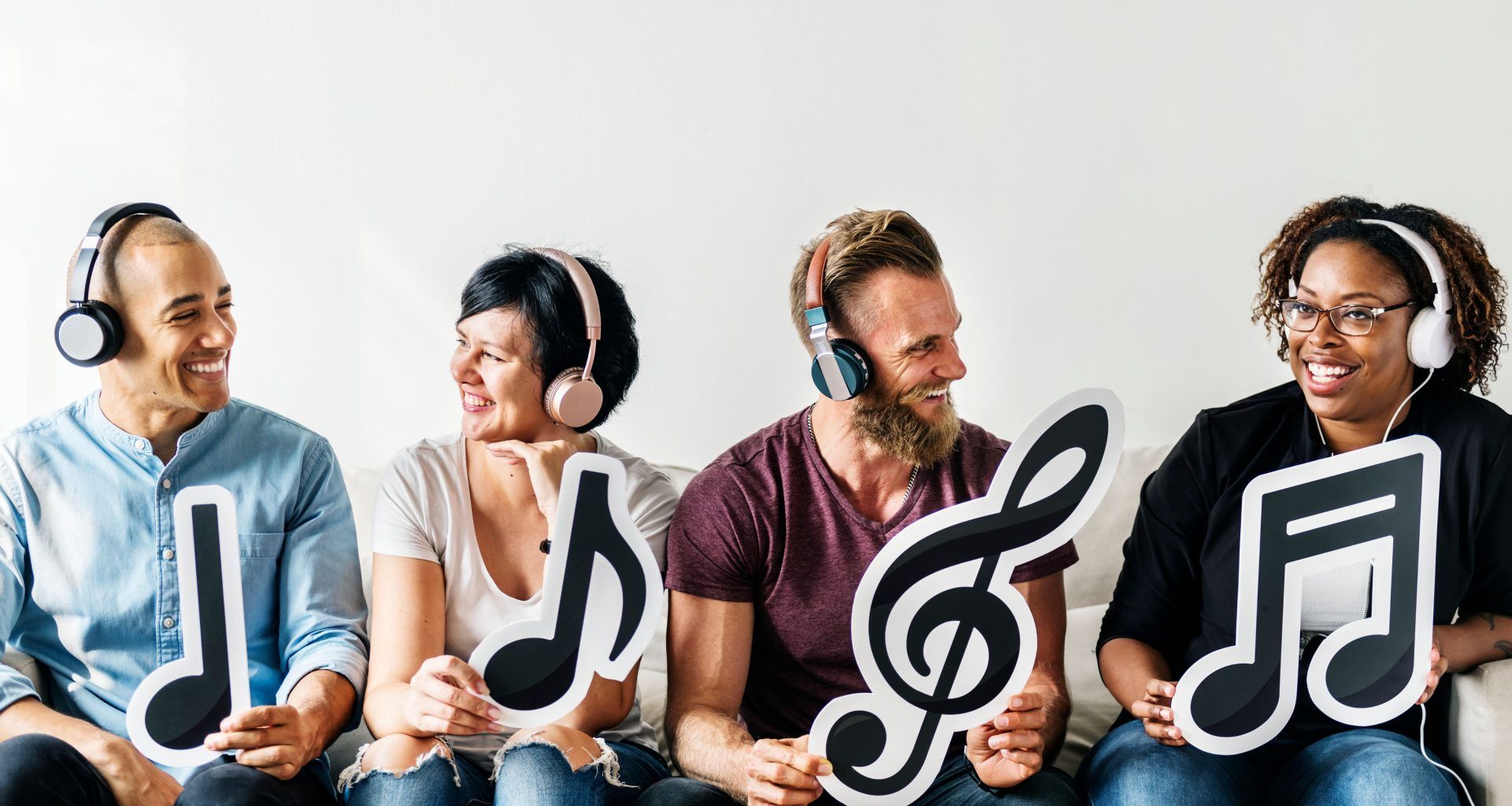Music is a powerful form of expression, and understanding the various types of music rights is crucial for anyone involved in the music industry. These rights ensure that creators are adequately compensated and protected. In this blog, we’ll explore the different types of music rights, their significance, and how they impact artists, songwriters, and the music industry as a whole.
What Are Music Rights?
Music rights are legal entitlements that grant creators control over how their music is used and distributed. These rights protect the intellectual property of musicians, songwriters, and producers, ensuring they receive fair compensation for their work. Let’s dive into the main types of music rights.
1. Copyright
Copyright is the most fundamental type of music right. It grants the creator exclusive rights to reproduce, distribute, perform, and create derivative works of their music.
Importance
Copyright protection ensures that the creator can control how their music is used and prevents unauthorized use. It lasts for the life of the creator plus an additional 70 years.
Example
When an artist records a song, they automatically own the copyright to that recording. This means no one can legally copy, distribute, or perform that song without permission.
More on Copyright
Copyright not only covers the melody and lyrics of a song but also the specific sound recording. This means that both the composer and the performer have rights that need to be respected. In the digital age, copyright has become even more significant due to the ease with which music can be copied and shared. Online platforms like YouTube and social media have strict copyright policies to protect creators.
2. Performance Rights
Performance rights are the rights to perform a song publicly. This includes live performances, radio broadcasts, and public playing of the music in venues like bars and restaurants.
Importance
Performance rights ensure that creators are paid whenever their music is performed publicly. Performance rights organizations (PROs) like ASCAP, BMI, and SESAC in the US collect these royalties on behalf of the creators.
Example
A band playing a cover song at a live concert pays for performance rights to perform the song legally.
More on Performance Rights
Performance rights are a critical revenue stream for artists, especially with the decline in physical sales. These rights also extend to digital performances such as streaming services and online radio. PROs monitor public performances and ensure that royalties are collected and distributed fairly. Without these organizations, it would be nearly impossible for individual artists to track and collect these payments.
3. Mechanical Rights
Mechanical rights are the rights to reproduce and distribute music in physical formats (like CDs) or digital formats (like downloads and streams).
Importance
Mechanical royalties are paid to songwriters and music publishers whenever their music is reproduced or distributed.
Example
When a song is sold on iTunes or streamed on Spotify, the songwriter earns mechanical royalties.
More on Mechanical Rights
Mechanical rights date back to the days of player pianos, which mechanically played music. Today, they have evolved to cover digital reproductions and distributions. Mechanical royalties are typically handled by organizations like the Harry Fox Agency in the United States. These rights ensure that songwriters are compensated for each copy of their work that is sold or streamed, providing a vital income stream in the digital age.
4. Synchronization Rights
Synchronization (sync) rights are the rights to use music in conjunction with visual media, such as movies, TV shows, commercials, and video games.
Importance
Sync licenses provide significant revenue for artists and songwriters and can also boost the song’s popularity by exposing it to new audiences.
Example
A filmmaker licensing a song for use in a movie trailer needs to obtain sync rights from the copyright owner.
More on Synchronization Rights
Sync rights are incredibly valuable in the modern entertainment industry. They not only provide financial benefits but also increase an artist’s exposure. A well-placed song in a popular TV show or commercial can lead to a surge in popularity and sales. Sync rights are typically negotiated directly between the rights holder and the media producer, and the terms can vary widely depending on the use and the prominence of the song.
5. Master Rights
Master rights are the rights to the actual recording of a song. These are usually owned by the recording artist or the record label.
Importance
Master rights control how the recording is used and distributed. Owning master rights can be very lucrative, as they cover all forms of the recording’s use.
Example
If a song is used in a commercial, the entity must obtain permission from the master rights owner to use that specific recording.
More on Master Rights
Master rights are often a point of contention between artists and record labels. Artists who sign with major labels typically transfer their master rights in exchange for promotional support and financial backing. However, retaining master rights allows artists to control their recordings’ use and earn higher royalties. Independent artists often strive to retain these rights to maintain control over their music.
6. Moral Rights
Moral rights refer to the rights of creators to protect their personal and reputational connection to their work. These include the right to attribution and the right to prevent derogatory treatments of their work.
Importance
Moral rights ensure that creators receive credit for their work and that their work is not altered or used in a way that harms their reputation.
Example
An artist can object to their music being used in a context they find offensive or inappropriate, even if they have sold the copyright.
More on Moral Rights
Moral rights are more commonly recognized in countries outside the United States, such as in Europe. These rights protect the personal connection artists have with their work, ensuring they can maintain their artistic integrity. Moral rights can prevent unauthorized modifications and ensure that artists are always credited for their creations.
7. Digital Rights
Digital rights pertain to the use of music in digital formats and platforms, including streaming services, digital downloads, and online broadcasts.
Importance
Digital rights are increasingly important in the modern music industry, where digital consumption is the norm. These rights ensure creators are compensated for the use of their music online.
Example
A songwriter earning royalties from Spotify streams through a digital rights management agreement.
More on Digital Rights
Digital rights management (DRM) technologies are used to control the use of digital music files. These technologies prevent unauthorized copying and distribution of music. In the digital age, protecting these rights is crucial for ensuring that artists are fairly compensated for their work. Streaming services, downloads, and online radio all rely on robust digital rights management systems to function properly.
How Music Rights Affect Artists
Understanding and managing music rights is crucial for artists for several reasons:
- Revenue Generation: Properly managing music rights can significantly boost an artist’s income through various royalty streams.
- Control Over Work: Artists maintain control over how their music is used and ensure it aligns with their personal and artistic values.
- Legal Protection: Music rights protect artists from unauthorized use and exploitation of their work.
- Career Longevity: Proper rights management can ensure long-term financial stability and career sustainability.
Tips for Managing Music Rights
- Register Your Works: Ensure that all your musical works are registered with the relevant copyright offices and performance rights organizations.
- Understand Contracts: Carefully read and understand any contracts you sign, especially those related to recording, publishing, and licensing.
- Use Professional Services: Consider hiring a music lawyer or manager to help navigate the complexities of music rights.
- Educate Yourself: Stay informed about changes in music rights laws and industry practices.
Additional Considerations for Music Rights
International Differences
Music rights laws can vary significantly from country to country. It’s essential for artists to understand the legal landscape in the regions where their music is distributed. For instance, moral rights are more robust in European countries compared to the United States. Artists should seek local legal advice when dealing with international music distribution to ensure they are adequately protected.
Emerging Technologies
The rise of new technologies, such as blockchain, is transforming how music rights are managed. Blockchain technology can provide a transparent and immutable record of music rights ownership and transactions. This can simplify rights management and reduce disputes. Artists and rights holders should stay informed about these technological advancements and consider how they might benefit from them.
Collaborations and Joint Ownership
Collaborations between artists can lead to joint ownership of music rights. It’s crucial to have clear agreements in place to define each party’s rights and responsibilities. Joint ownership can complicate rights management, so having detailed contracts can help prevent conflicts and ensure that all collaborators are fairly compensated.
Conclusion
Navigating the various types of music rights can be complex, but it’s essential for protecting and maximizing the value of your music. Whether you’re an artist, songwriter, or producer, understanding these rights will help you manage your career more effectively and ensure you receive the compensation you deserve.
By familiarizing yourself with copyright, performance rights, mechanical rights, synchronization rights, master rights, moral rights, and digital rights, you can take full control of your musical creations and enjoy a successful career in the music industry.
Understanding and managing these rights not only ensures that you are compensated for your work but also protects your artistic integrity. Stay informed, seek professional advice, and always be proactive about your music rights to safeguard your career in the ever-evolving music industry.
For further reading, explore these related articles:
- Tip for Growing Your YouTube Channel
- Contract Negotiation Tips for Musicians
- The Ultimate Guide to International Music Distribution for Independent Artists
For additional resources on music marketing and distribution, visit Deliver My Tune.






